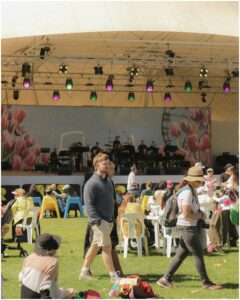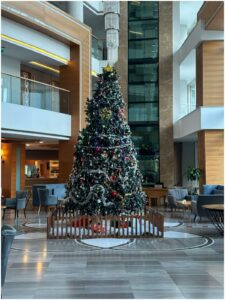Summer is prime time for outdoor festivals, concerts, food truck rallies, and community celebrations. With warm weather and longer days, people are eager to gather, but that also means venue coordinators have more to manage when it comes to ensuring public safety. Whether you’re hosting thousands at a fairground or managing a smaller private event, having a clear security plan in place is essential.
Use this summer event security checklist as a framework to keep your gathering safe, organized, and stress-free from the moment gates open to the final teardown.
1. Start with a Site Assessment
Before building your security plan, take a thorough look at the event layout. Walk the space and identify potential vulnerabilities like multiple entry points, dark or unmonitored areas, and narrow pathways that could get congested. Think through:
- Where will guests enter and exit?
- Are there clearly defined perimeters or fencing?
- What areas should be restricted to staff only?
- Are there emergency vehicle access points?
A walk-through with your security team early in the planning process can help spot issues before they become problems.
2. Set Up Access Control and Checkpoints
Managing who comes in and out of your event is one of the most effective ways to keep guests safe. That might mean:
- Bag checks at entrances
- Credentialed access for staff, vendors, or VIPs
- Security stationed at backstage or restricted zones
- Signage to clearly mark entrances, exits, and emergency routes
Creating a controlled entry experience not only deters unwanted activity but also sets the tone for a well-organized event.
3. Be Smart About Crowd Management
From rowdy concerts to relaxed wine festivals, every crowd behaves differently. Having a plan to manage flow and density is crucial. Consider:
- Staggering entrances to avoid bottlenecks
- Placing security in high-traffic areas like food vendors, stages, and restrooms
- Using physical barriers or fencing to direct flow
- Monitoring guest capacity in real time
An experienced security team can read a crowd, de-escalate tension, and adapt quickly when things don’t go as planned.
4. Prepare for the Heat
Summer events come with their own health and safety challenges, especially in the heat. Be proactive by providing:
- Hydration stations and shaded areas
- First aid tents and mobile medical support
- Cooling zones or misting fans
- Signage reminding guests to stay hydrated and take breaks
Security personnel should be trained to spot signs of heat-related illness and know how to respond swiftly if a guest needs help.
5. Account for Vendors, Staff, and Deliveries
It’s not just the guests who need managing—vendors, performers, and service providers also require coordination. A few smart strategies:
- Schedule vendor load-in/out windows and assign parking areas
- Issue credentials and confirm IDs at all back-of-house access points
- Maintain a centralized communication plan for all staff on-site
- Assign security escorts for high-value equipment deliveries or cash transfers
Keeping your backend operations smooth helps prevent confusion and keeps the focus on the guest experience.
6. Build an Emergency Response Plan
Even with the best planning, things can happen—so make sure your team is prepared:
- Establish clear communication channels between coordinators and security (e.g., two-way radios or mobile apps)
- Designate a command post where decisions can be made quickly
- Review protocols for weather delays, lost children, medical emergencies, and evacuation
- Walk your staff through potential scenarios so they know what to do
Preparedness brings peace of mind—for your team and for your guests.
7. Evaluate Your Tech Needs
Depending on your event size and location, you may benefit from additional security tools like:
- Surveillance cameras to monitor the grounds
- Two-way radios for on-the-ground communication
- Light towers for nighttime events
- Emergency alert systems for staff
Your security provider can help identify what’s appropriate for your event and scale your setup based on your budget and risk level.
8. Review and Debrief Post-Event
After the event, don’t forget to regroup. What worked? What needs improvement? Debriefs with your team and your security provider can help you refine your process for the next event. Keep a checklist of wins and learnings to reference later.
Closing Thoughts
Security shouldn’t be an afterthought. It should be one of the first conversations you have when planning a summer event, because when guests feel safe, they stay longer, enjoy more, and return again next year.
MProtective works with venues, municipalities, and event coordinators across the region to support events of all sizes. Our teams are experienced, professional, and ready to help you create a safe, seamless experience this summer.
Have an event coming up? Let’s talk about what security could look like for your team.



